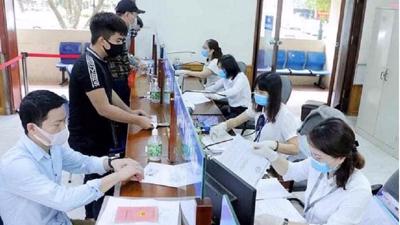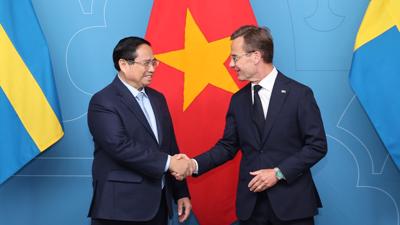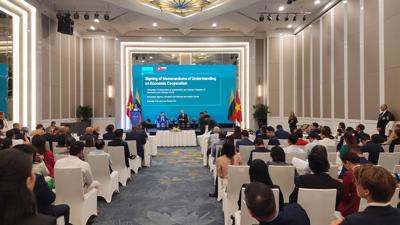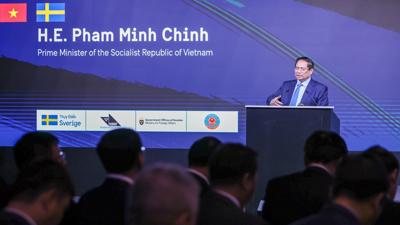Prime Minister leaves Hanoi for visits to three Middle East countries
PM Pham Minh Chinh’s trip to the United Arab Emirates (UAE), Qatar, and Saudi Arabia will last until November 1.

Prime Minister Pham Minh Chinh, his spouse, and a high-ranking delegation of Vietnam left Hanoi on October 27 morning for official visits to the United Arab Emirates (UAE) and Qatar, attendance at the 8th Edition of the Future Investment Initiative (FII), and a working trip to Saudi Arabia, according to a report from the Vietnam News Agency.
The trips, to last until November 1, will be made at the respective invitations of UAE President of Mohamed bin Zayed Al Nahyan, Prime Minister of Qatar Sheikh Mohammed bin Abdulrahman bin Jasim Al-Thani, and Crown Prince and Prime Minister of Saudi Arabia Mohammed Bin Salman.
Accompanying the PM and his spouse are Deputy Prime Minister and Minister of Foreign Affairs Bui Thanh Son; Minister-Chairman of the Government Office Tran Van Son; Minister of Industry and Trade Nguyen Hong Dien; Minister of Labour, Invalids and Social Affairs Dao Ngoc Dung; Minister of Information and Communications Nguyen Manh Hung; Minister of Science and Technology Huynh Thanh Dat; and Minister of Justice Nguyen Hai Ninh, among others.
These are the first official visits to the UAE and Qatar by a Vietnamese PM over the past 15 years, and the first-ever visit to Saudi Arabia since the two countries established diplomatic relations in 1999. This also marks the first time the PM has been invited as the chief guest and the only high-ranking leader in Asia to address the IFF.
The UAE, Saudi Arabia and Qatar are identified as important, long-term, and comprehensive partners in various fields in the Middle East. These countries also view Vietnam as a key partner in Southeast Asia, aligning with their "Look East" policy. The relations between Vietnam and the UAE, Saudi Arabia, and Qatar have been growing, with increasingly close cooperation and mutual support at various multilateral forums.
PM Chinh’s visits are expected to create a new momentum for traditional areas of cooperation, create breakthroughs in potential fields, and, above all, establish a firm political trust to pave the way for a new phase of cooperation between Vietnam and the three countries, as well as the entire region.
This is a practical step in realizing the 13th National Party Congress’s foreign policy of multilateralization and diversification of external ties, active and proactive international integration, with a priority to the diversification of markets, partners and supply chains, contributing to reinforcing an environment of peace and cooperation, while maximizing resources for national development.







